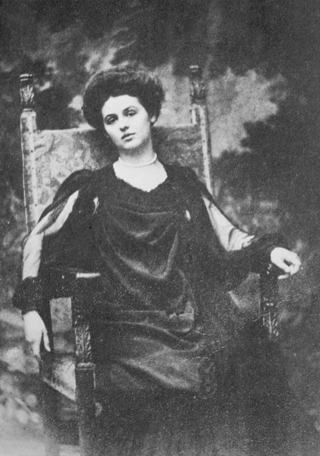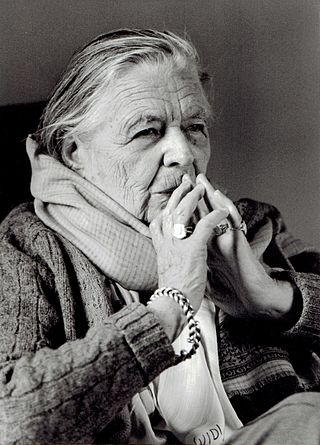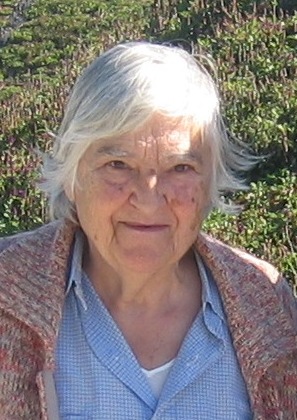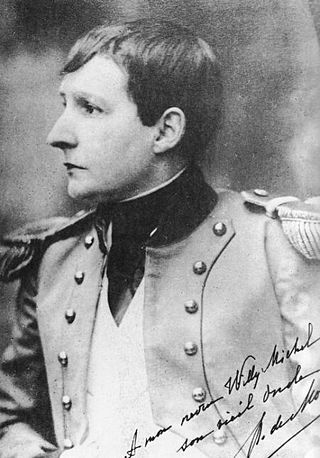
Sidonie-Gabrielle Colette, known mononymously as Colette, was a French author and woman of letters. She was also a mime, actress, and journalist. Colette is best known in the English-speaking world for her 1944 novella Gigi, which was the basis for the 1958 film and the 1973 stage production of the same name. Her short story collection The Tendrils of the Vine is also famous in France.

Stéphane Mallarmé, pen name of Étienne Mallarmé, was a French poet and critic. He was a major French symbolist poet, and his work anticipated and inspired several revolutionary artistic schools of the early 20th century, such as Cubism, Futurism, Dadaism, and Surrealism.

Régine Deforges was a French author, editor, director, and playwright. Her book La Bicyclette bleue was the most popular book in France in 2000 and it was known by some to be offensive and to others for its plagiarism, neither of which was proved.

Renée Vivien was one of the first twentieth-century lesbian British poets. [p.12] She wrote in French, in the style of the Symbolistes and the Parnassiens. A high-profile lesbian in the Paris of the Belle Époque, she is notable for her work, which has received more attention following a recent revival of interest in Sapphic verse. Many of her poems are autobiographical, pertaining mostly to Baudelarian themes of extreme romanticism and frequent despair. Apart from poetry, she wrote several works of prose, including L'Etre Double, and an unfinished biography of Anne Boleyn, which was published posthumously. She has been the object of multiple biographies, most notably by Jean-Paul Goujon, André Germain, and Yves-Gerard Le Dantec.

Marguerite Yourcenar was a Belgian-born French novelist and essayist who became a US citizen in 1947. Winner of the Prix Femina and the Erasmus Prize, she was the first woman elected to the Académie Française, in 1980. In 1965, she was nominated for the Nobel Prize in Literature.
This article contains information about the literary events and publications of 1932.
Purism in the linguistic field is the historical trend of languages to conserve intact their lexical structure of word families, in opposition to foreign influences which are considered 'impure'. Historically, English linguistic purism is a reaction to the great number of borrowings in the English language from other languages, especially Old French, since the Norman conquest of England, and some of its native vocabulary and grammar have been supplanted by features of Latinate and Greek origin. Efforts to remove or consider the removal of foreign terms in English are often known as Anglish, a term coined by author and humorist Paul Jennings in 1966.

A short story collection is a book of short stories and/or novellas by a single author. A short story collection is distinguished from an anthology of fiction, which would contain work by several authors. The stories in a collection may or may not share a tone, theme, setting, or characters with one another.

Etel Adnan was a Lebanese-American poet, essayist, and visual artist. In 2003, Adnan was named "arguably the most celebrated and accomplished Arab American author writing today" by the academic journal MELUS: Multi-Ethnic Literature of the United States.

Mohammed Bennis is a Moroccan poet and one of the most prominent writers of modern Arabic poetry. Since the 1970s, he has enjoyed a particular status within Arab culture. Muhsin J al-Musawi states that "Bennis’ articulations tend to validate his poetry in the first place, to encapsulate the overlapping and contestation of genres in a dialectic, that takes into account power politics whose tropes are special. As a discursive threshold between Arab East and the Moroccan West, tradition and modernity, and also a site of contestation and configuration, Muhammad Bennis' self-justifications may reveal another poetic predilection, too."

Green Wheat is a 1923 novel by the French writer Colette. The book was written during the vacation of the writer on her property Roz-Ven in Saint-Coulomb, between Saint-Malo and Cancale.
Colette Khoury is a Syrian novelist and poet, born in 1931, who is also the granddaughter of former Syrian Prime Minister Faris al-Khoury. Khoury graduated from Damascus University with a bachelor's degree in French literature and she received a diploma from the school of literature in Beirut. Khoury's notability stems from her work in politics and literature. Her work as a writer focuses on love and erotica, a subject that was previously taboo in Syrian literature.

Dame Cicely Veronica Wedgwood, was an English historian who published under the name C. V. Wedgwood. Specializing in the history of 17th-century England and continental Europe, her biographies and narrative histories are said to have provided a clear, entertaining middle ground between popular and scholarly works.

Maxence Van der Meersch was a French Flemish writer.
Colette Sol Rossant was a French-American cookbook author, journalist, translator, and restaurateur, who was a member of the Pallache family.

Viken Berberian is a writer and essayist whose works rely on satire and defy easy categorization. Berberian's fiction and essays have appeared in print and online in The New York Times, le Monde Diplomatique, Foreign Affairs, Financial Times, Granta, BOMB, The Nation, and the New York Review of Books. His novels have been translated to French, Hebrew, Italian, German and Dutch. They are marked by keen wit and a sense of economic and political injustice.

Duo is a 1934 novel by the French writer Colette. The story focuses on a married couple on vacation in southern France, who deal with the fact that the wife has been unfaithful. Roberto Rossellini's 1954 film Journey to Italy is loosely based on the novel but is uncredited because the rights were not issued.

Mathilde de Morny was a French aristocrat and artist. She was also known by the nickname "Missy" or by the artistic pseudonym "Yssim", or as "Max", "Uncle Max", or "Monsieur le Marquis". Active as a sculptor and painter, Morny studied under Comte Saint-Cène and the sculptor Édouard-Gustave-Louis Millet de Marcilly.
Herma Briffault, born Herma Hoyt (1898–1981) was an American ghostwriter and translator of French and Spanish literature.

Hélène Picard, born Hélène Dumarc on October 1, 1873, in Toulouse and died on February 1, 1945, in Paris, was a French poet.














